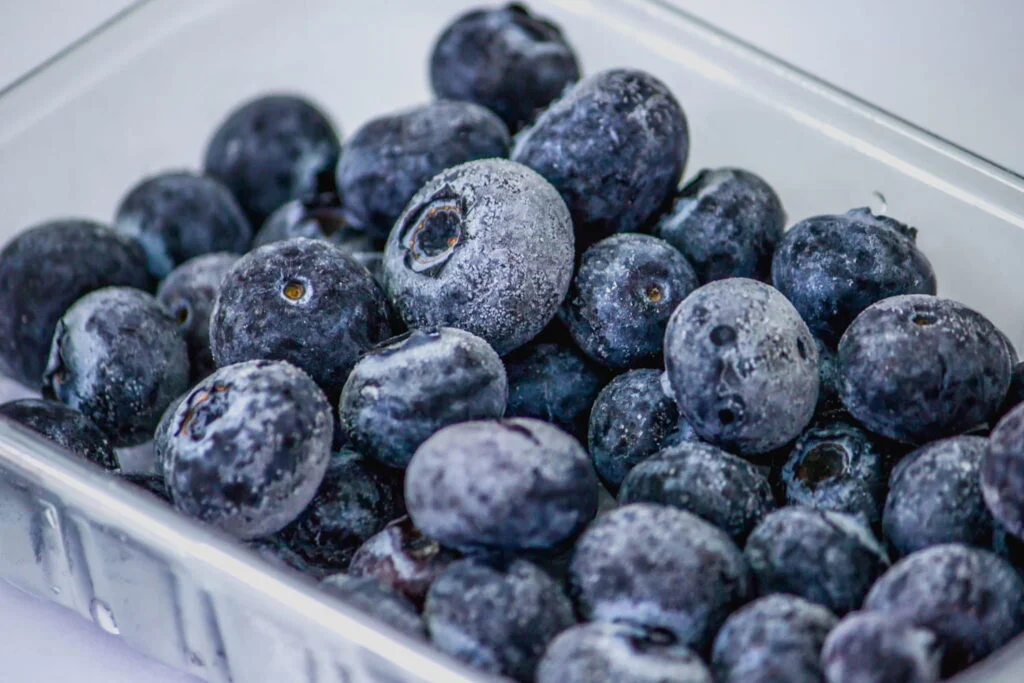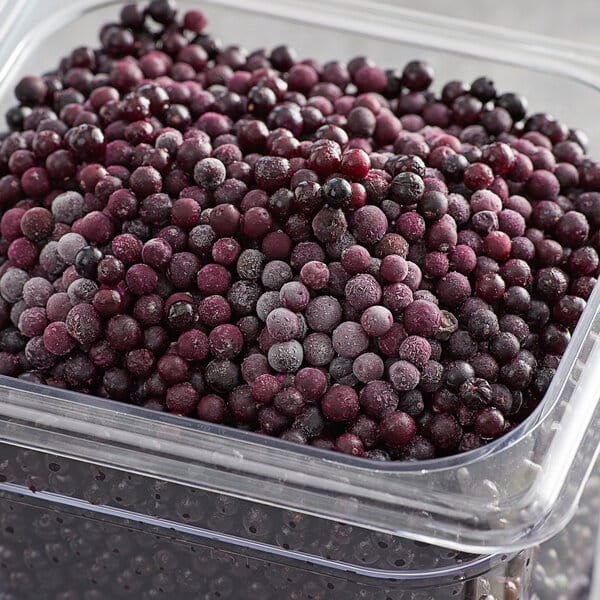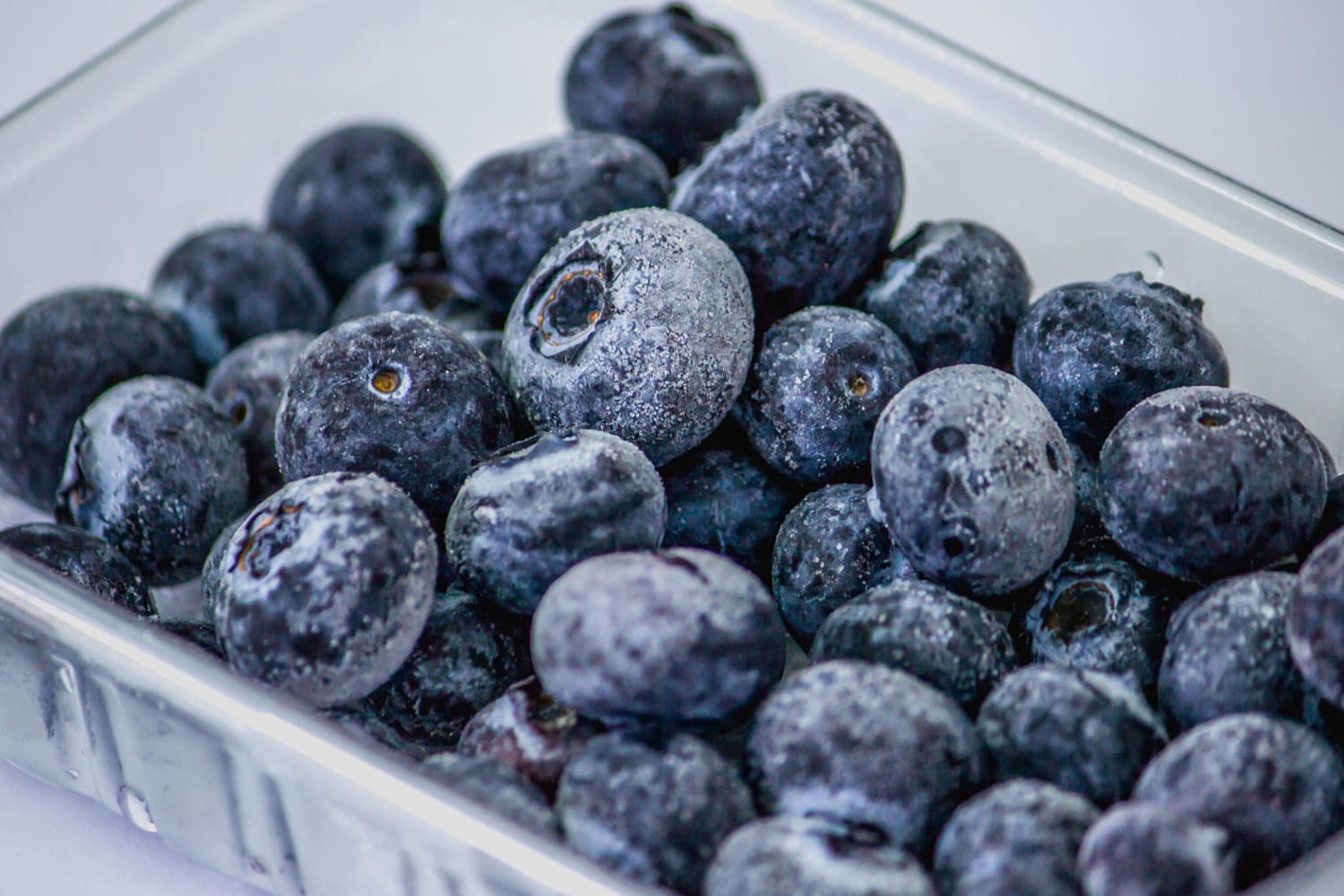You may have been wondering if dehydrating frozen fruit is possible. Or if the result will be as good as when you dehydrate fresh fruit.
So can you dehydrate frozen fruit?
Well, the answer is yes – but there are certain techniques you need to apply, so you can achieve a great outcome when you dehydrate it.
In a nutshell, the process of dehydrating frozen fruit is even faster as when you dehydrate fresh fruit. Blueberries, for instance, are quick to dehydrate when frozen. Let’s discuss the process of dehydrating fruits and the different types of fruits you can work with.
How To Dehydrate Frozen Blueberries

First, let’s talk about dehydrating frozen blueberries. As we have mentioned, these fruits are among the quickest to dehydrate. When you want to dehydrate frozen blueberries, there is no need for you to defrost them first. Otherwise, it can be quite a messy ordeal.
First, spread the frozen blueberries out to make sure there’s ample space between each. Set the dehydrator to 125 degrees or per your dehydrator’s directions. It can take between 15 to 30 hours for frozen blueberries to dehydrate, as this depends on the size of the fruit and the moisture content.
If you want to speed up the dehydrating process, you can puree or mash the berries. However, do not increase the temperature just to dry them quicker. Otherwise, they may end up getting hard on the outside while the middle remains moist.
You can also cut the berries in half, which speeds up the drying process. But no matter what technique you follow, be sure to dry them well before storing to prevent bacteria growth.
Dehydrated blueberries will appear much smaller and quite shriveled. This is normal, so do not be alarmed if they end up looking this way. Then, let them cool for up to 15 minutes until they are hard and somewhat leathery. The most important thing is that there is absolutely no moisture left at all to prevent spoilage.
Can You Dehydrate Frozen Blackberries?
You absolutely can! Frozen blackberries are good to dehydrate if you want to preserve them longer and would like to turn them into chewy fruit leather.

For best results, be sure to cut your blackberries in half. Not only will this help to dry them faster but you can also be sure there is no moisture left for safe storage.
A pro tip when dehydrating frozen blackberries is by coating them with sugar. This further enhances the flavor, although it is not a must. You can do away with or without sugar, depending on your preference.
Can You Dehydrate Frozen Elderberries?
Frozen elderberries are fine to dehydrate. It is also simple to carry out this process, and there are only three easy steps.
First, place your frozen berries on your dehydrator screen, which has been lined with parchment paper. The berries must be arranged in a single layer to let them dry faster. The stems should also be removed.

Next, dehydrate your elderberries in the machine at 125 to 135 degrees Fahrenheit. The entire process should take about 20 hours, and this depends on the moisture content of your berries. Check them once in a while just to make sure that things are going well.
Lastly, you should be ready to take the fruits out of the dehydrate after 15 to 20 hours. Allow them to cool well and be sure they are completely dry before placing them in a sealed container with an airtight lid.
Can You Dehydrate Frozen Cherries?

Frozen cherries are okay to dehydrate. The entire process is the same as when you are dehydrating blackberries or any berries. Simply cut them in half and place them on your dehydrator tray that has been lined with parchment paper.
It is also good to coat the cherry slices with sugar for extra sweetness. This, however, is only optional if you only prefer them sweeter.
Dehydrating Raspberries
It should be perfectly easy and simple to dehydrate raspberries just like the other frozen fruits we have mentioned earlier. This is also one way to preserve them, so you can enjoy them longer.
To dehydrate raspberries, some preparation is needed. Inspect for any bad raspberries and discard them. Then, rinse the berries well with a vinegar/water wash, so it is completely natural.
Shake off excess water and lay the berries on towels. Let them dry before placing them into your dehydrator.

Dehydrate raspberries at 125 degrees Fahrenheit for about 24 to 36 hours, depending on how long the moisture disappears. Some people prefer dehydrating at 135 degrees Fahrenheit, yet 125 is better when it comes to raspberries.
The most important thing is to avoid cramming your fruits in the machine. Allow for spaces between each, as this helps to dry the fruit completely to prevent molds and spoilage when you store them.
Can You Dehydrate Frozen Strawberries
You can dehydrate frozen strawberries just like with other fruits. The most important thing is to prepare them first before the dehydration process. Cut each piece and be sure to maintain a uniform thickness. The process of dehydrating strawberries should take between 6 and 10 hours.

But when dehydrating strawberries, do not thaw or defrost them first. You can place them in the dehydrator straight away since defrosting makes them mushy and harder to slice.
Can Dried Fruit Be Frozen
Once you have dried your fruit, you can either store it in an airtight container or freeze it.
If you prefer to freeze, you can expect them to last longer. In fact, freezing well-packed dried fruits should last 3 to 4 times longer than when you simply leave them on the shelf.
To freeze dried fruit, be sure to keep it in a vacuum-sealed container. This type of packaging is perfect for keeping the taste fresh longer.
It is also good to freeze them when you do not plan on eating your dried fruits right away. When exposed to light, this causes the dried fruits to appear duller since light fades their color a bit. Light also quickly destroys the vitamin A and C in these fruits.
So, it is best to keep them in the freezer, the refrigerator, or a dark section in your kitchen.
Conclusion
Dehydrating frozen fruit is completely possible and so easy to do. You can use many fruits to dehydrate such as blackberries, blueberries, elderberries, cherries, strawberries, and raspberries. Just be sure to follow our tips on how to dehydrate frozen fruit and store it properly afterwards.
This way, you can preserve your fruits longer and help them to retain their excellent flavor and nutritional content.






